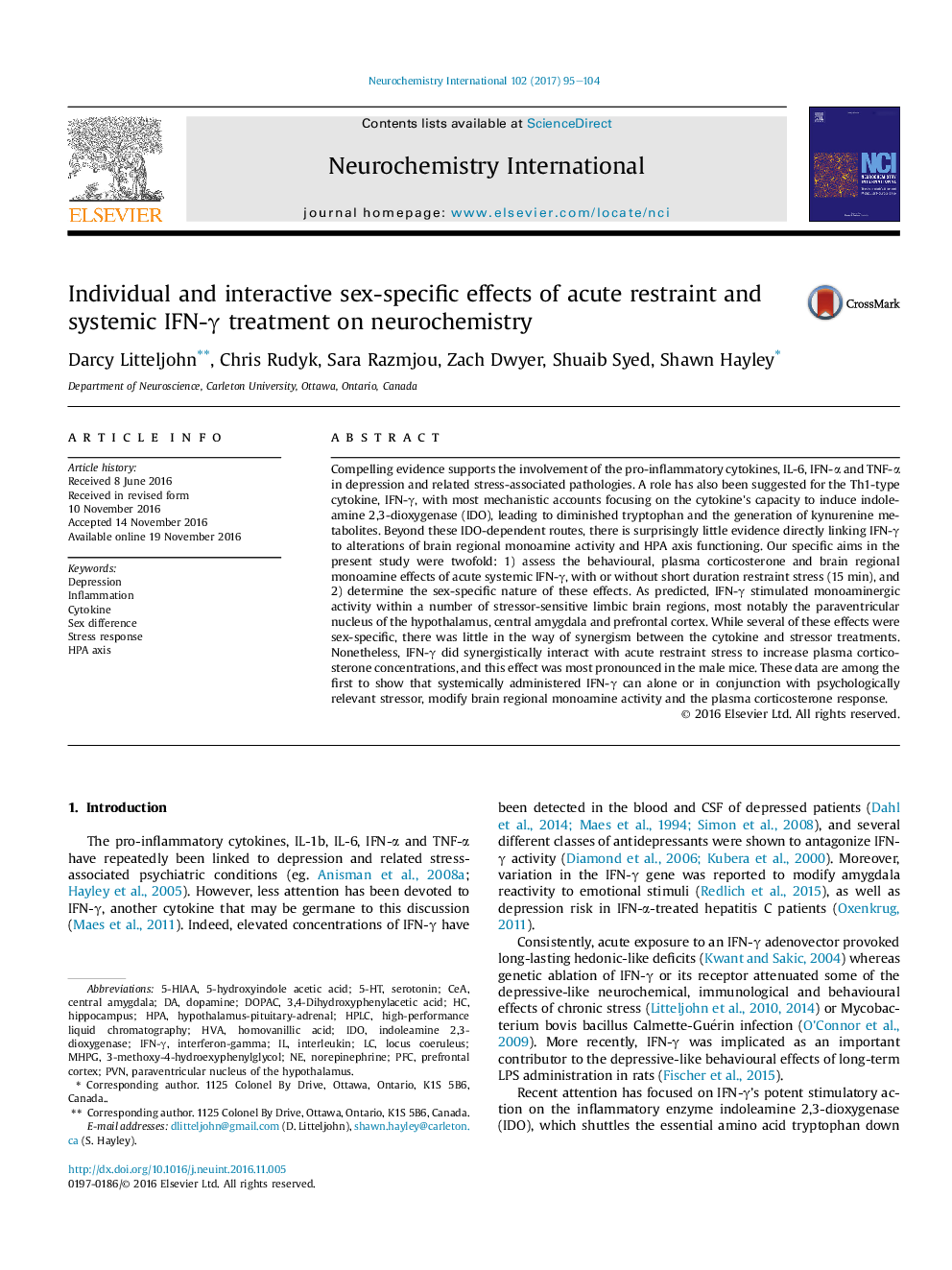| Article ID | Journal | Published Year | Pages | File Type |
|---|---|---|---|---|
| 5534629 | Neurochemistry International | 2017 | 10 Pages |
â¢Acute systemic IFN-γ sex-dependently stimulates monoaminergic activity within a number of stressor-sensitive limbic brain regions.â¢IFN-γ interacts synergistically with acute restraint stress to increase plasma corticosterone levels.â¢These effects are largely reminiscent of the neurochemical changes induced by other depression-linked inflammatory cytokines in comparable acute exposure experimental paradigms.â¢The pattern of HPA and brain monoamine variations induced by IFN-γ is consistent with a role in the regulation of emotional and cognitive processes.
Compelling evidence supports the involvement of the pro-inflammatory cytokines, IL-6, IFN-α and TNF-α in depression and related stress-associated pathologies. A role has also been suggested for the Th1-type cytokine, IFN-γ, with most mechanistic accounts focusing on the cytokine's capacity to induce indoleamine 2,3-dioxygenase (IDO), leading to diminished tryptophan and the generation of kynurenine metabolites. Beyond these IDO-dependent routes, there is surprisingly little evidence directly linking IFN-γ to alterations of brain regional monoamine activity and HPA axis functioning. Our specific aims in the present study were twofold: 1) assess the behavioural, plasma corticosterone and brain regional monoamine effects of acute systemic IFN-γ, with or without short duration restraint stress (15 min), and 2) determine the sex-specific nature of these effects. As predicted, IFN-γ stimulated monoaminergic activity within a number of stressor-sensitive limbic brain regions, most notably the paraventricular nucleus of the hypothalamus, central amygdala and prefrontal cortex. While several of these effects were sex-specific, there was little in the way of synergism between the cytokine and stressor treatments. Nonetheless, IFN-γ did synergistically interact with acute restraint stress to increase plasma corticosterone concentrations, and this effect was most pronounced in the male mice. These data are among the first to show that systemically administered IFN-γ can alone or in conjunction with psychologically relevant stressor, modify brain regional monoamine activity and the plasma corticosterone response.
